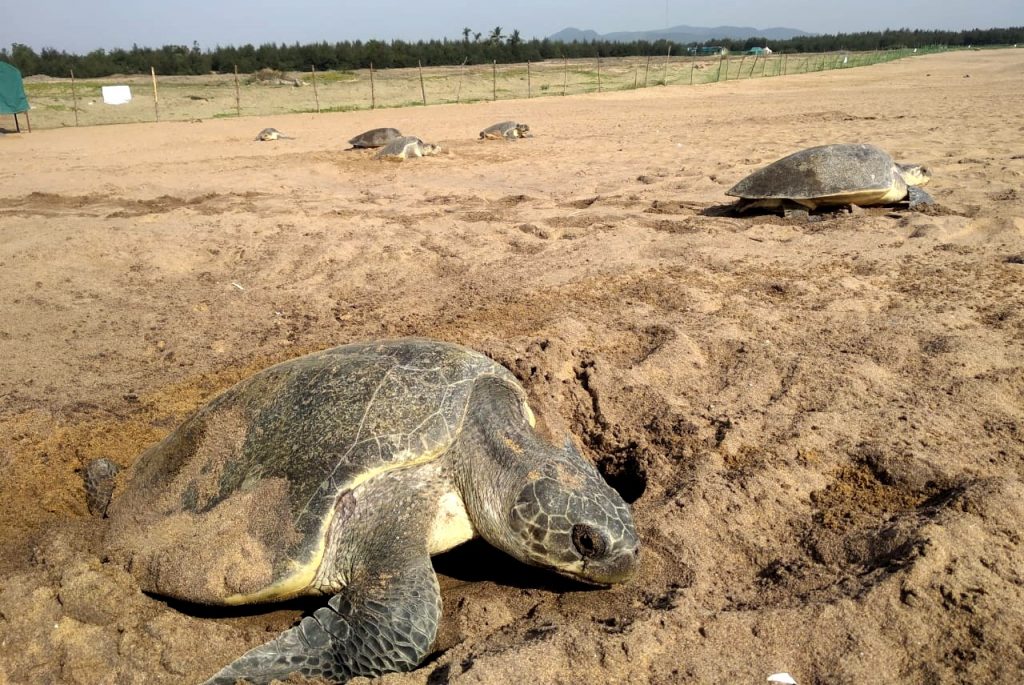Ganjam: Mass nesting of Olive Ridley turtles along the Rushikulya river-bed near Purunabandha village in Ganjam district started late this year. The local forest department has toughened its measures to protect the reptiles from COVID-19.
About 2,248 Olive Ridley turtles laid eggs en masse in the wee hours of Saturday. Although the process of mass nesting began from second week of February this year, the reptiles have had been sporadically laying eggs so far, along the Rushikulya river-bed here.
Mass nesting figure of this season is said to be the highest Saturday around 4.30 in the morning. Previously, 278 turtles all together had laid eggs during this season. However, keeping in mind the likely attack of COVID-19, this area has been declared as a prohibited zone, Khallikote Forest Ranger Dillip Kumar Martha said.
Local forest department has taken several preventive measures in this regard, including barricading of the mass nesting area. Coast guards have been deployed at several strategically important locations here.
Worthy to note, the endangered Olive Ridley turtles migrate over to Odisha coasts for mass nesting and reproduction, from far-away places like Costa Rica, Sri Lanka and Japan. A record number of over 3,20,000 turtles laid eggs on the Rushikulya coastline in 2016.
Ganjam Divisional Forest Officer Amlan Nayak, Rambha Divisional Forest Officer Somnath Mallick together with Martha inspected this area to decide on further measures, department sources said.
Notably, COVID-19 belongs to a large family of viruses. Some of these viruses cause cold-like illnesses in people, while others cause illness in certain types of animals. Some coronaviruses, such as canine and feline, only infect animals and do not infect humans. However, there is no evidence that companion animals can spread COVID-19 viruses.
PNN
